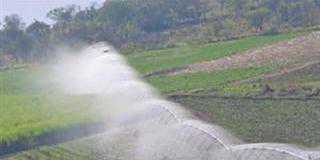What will Grain SA’s proposed new structure be?
Grain SA (GSA) needs to evaluate whether its congress should still have 340 delegates, the executive 33 members and the management committee five members. The number of working groups should support our strategic objectives as the leading provider of industry strategic services to the South African grain producer and should be evaluated on whether they all align with that.
Our main aim is to support grain producers to sustainably and profitably produce food for our country and its people. Our corporate structures must support our strategic objectives and be flexible enough to meet the needs of our time. The staff must be multi-skilled and not just specialise in one subject matter or field. We have identified this as a medium priority. We will also focus on training those in leadership positions dealing with government and other role players in the sector.
Grain SA will therefore continue to act responsibly in providing food and be responsible employers. We are fully committed to developing new grain farmers who can produce sufficient food for our nation. Our strategy will be supported by a TV advertising campaign that will run during the first half of this year. All of this is part of our plan to positively impact the policy environment for sustainable and profitable grain production.
The main focus of the GSA TV and radio marketing campaign is to reach decision makers and policy makers in government. Why them specifically, and what about grain consumers?
The advertisements will air in March on DStv and on SABC 2 during Morning Live. TV is not necessarily the best and most cost-effective medium to communicate to grain consumers, but agriculture is served by various government departments and institutions and TV is currently the preferred way to communicate our message to them.
We want them to see us not merely as farmers but as the providers of food for the country. That is why we embarked on a TV advertisement campaign specifically aimed at them. We need to improve co-operation with government and build trust and grow partnerships that can resolve the major issues such as food security, job creation and sustainable transformation. These are critical and much-needed today.
GSA petitioned the National Agricultural Marketing Council (NAMC) to force role players in the maize industry to report all relevant information on maize exports via the South African Grain Information Service (SAGIS). What was the rationale behind this application?
SAGIS reports the actual export and import on a historical basis. Nobody knew how much of the current stock in South Africa had already been sold to other countries. Without that information, we all assumed there was still a big surplus and the grain price remained low (at times even under export parity).
The result was that South Africa exported more than the surplus. The net effect is that South African producers sold too much maize at export parity and didn’t share in the benefit of higher prices. Now consumers have to pay more when maize is imported at higher prices. This could have been prevented if the information was available.
We started formal negotiations in November 2011 to have this information made public after informal talks that started in April last year weren’t successful. Our application was successful and it was gazetted on 10 February.
Research on and promotion of conservation cultivation was also mentioned as a priority for 2012. What role can GSA play and why is it so important?
Conservation agriculture can help farmers make more profit and can assist in counteracting the impact of climate change. We will co-ordinate research, and help with technology transfer via the media and farmers’ days. Grain SA is also a member of various trusts, such as the Maize Trust and the Winter Grain Trust that could allocate funds towards research, trial plots and capacity to understand and implement the concept better.
Our co-operation agreement with the Argentine government is an integral part of this strategy. As part of the agreement with Argentina, we are doing trials using its no-till planters to see how well they work. If the trials are successful, Argentina will be able to sell its planters in South Africa.
You mentioned that the quality of export maize was crucially important for SA to retain its export markets in the long term. How does SA maize quality compare to that of the major maize producers?
Virtually all of South African maize is naturally dried and because of the dry, hot climate it is very hard. This is what the processors are looking for. During the Maize Board days with the single channel exports, we earned a premium mainly in countries in the East.
This premium was up to US$5/t extra and we want it back! We can only do so by becoming reliable and consistent in our supply to these markets. The product is ready; we just have to keep on producing a surplus. We will endeavour to do comparative studies and market those as our advantage over the US and Argentina.
What is your view on the perception that GSA exported maize and consequently caused the current shortage?
Grain SA doesn’t export any product. The trade is responsible for buying and selling grain. Because we are a free market, it is a case of ‘first come, first served’ – whoever is the highest bidder. We are almost always importing and exporting in the same season, depending on the price and especially transport costs.
SA exported to Africa from our northern regions and imported from Argentina into the Western Cape. In a free market, this is normal business practice. What is important here is that the market is working well. There will not be a shortage of maize, only of South African maize. The estimated surplus was about 2 million tons.Initially we thought our exporting capacity would only be 1 million tons. We are about to export 2,4 million tons this marketing year.
This is a great job by the trade and logistic partners, which include the silos and transport industry. To the local buyers that are not covered, I say, “If you snooze, you lose”. For this season, we will experience the saying, “When the tide goes out, we will see who swam naked”.
How will Grain SA deal with the unabated issuing of mining licences and its ultimate impact on food security?
We are launching a study via the Maize Trust to spell out the consequences of the current practices. We will share the findings with the relevant government departments. In the end, it is government’s responsibility to prioritise, but we need to supply it with the best possible information. We will also give the information to the National Planning Commission.
Why is unity in organised agriculture so important and how far has GSA come?
I have seen the damage caused by agriculture not being united. Not just in bad policies, but also in the mistrust between people and leaders who are supposed to give the nation hope and direction. South Africa achieved so much in the 1990s in showing the world what can be done through goodwill.
It has lost some of that momentum and, if not regained, there could be long food queues. If we can reach consensus among all the representative bodies in organised agriculture and go to government with one plan of about 10 policy amendments, I believe we will have a strong case to convince government to listen to us without being suspicious. It is the right thing to do.
If prospective Grain SA members ask why they should join the organisation in 2012, what would you tell them?
Organised agriculture still makes a big difference. There is still power in unity. During a time of great shortage of capacity, an organisation such as Grain SA makes a huge impact by availing capacity. Only those who are organised and have the skills and capacity can assist government in finding workable solutions to land reform.
Sometimes it is only those who are alert and skilled who can react to matters affecting farmers in a positive or negative way. If we are not organised, we can’t make a difference. Grain SA is making a difference in all areas affecting the grain producer. To save a few thousand rand a year by not being a member is to show no faith in the future of the country. We are in it for the long haul and for the next generation.
Contact Jannie de Villiers on 08 600 47246 or email [email protected]













